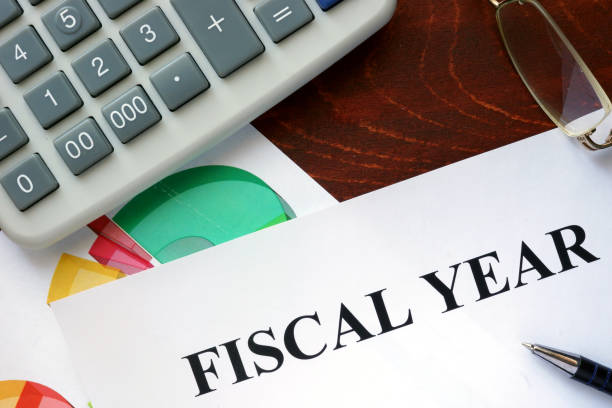Introduction
What Is Fiscal Year-End? Instead of keeping track of inventory, these companies must concentrate on production and sales. The end of fiscal year dates includes the months of March, June, and September. October 31 marks the end of the fiscal year for the country's leading private banks. The financial year of most organizations is based on the 365-day calendar year. For example, here are a few alternate formulations: The U.S. federal government and its agencies' fiscal year ends on September 30. The fiscal year begins on October 1 each year.
Schools are divided into districts. Since the school year ends in June, June 30 is the end of the fiscal year for most districts of schools. July 1 marks the beginning of the fiscal year. The end of the fiscal year is on January 31 for retailers. This way, retailers can keep their operations running smoothly during the peak holiday shopping season.

Nonprofits
The fiscal year ends in June, the most grant-friendly month. July 1 marks the beginning of the fiscal year. For my fiscal year-end, what is the best date to end my fiscal year? For most companies, the end of a fiscal year is based on the factor:
A business model
A fiscal year ending on December 31 is necessary for businesses taxed as sole proprietorships (such as a single-member LLC) to meet the personal income tax year. It is possible to choose the end date of your fiscal year if your company is not taxed as a sole proprietorship. Many companies choose the end of their fiscal year based on the industry's business cycle, and many do so during the year's busiest period.
Here are a few examples: Businesses that do most of their work in the summer may choose to end the year on September 30. Your business may choose to have its fiscal year-end on September 30 if it does a lot of work with federal agencies like the U.S. government. If the bulk of your company's sales occurs over the holiday season, December 31 might be a better choice.
What factors go into calculating the end of the fiscal year for a company?
There are numerous reasons a company may choose to shift at the end of its fiscal year. November, December, and January are the busiest of the year for many businesses. As a result, accounting can be incredibly hectic at these times. Businesses that operate on a seasonal basis may choose to close their fiscal year in September or October, depending on how busy they are in the summer. A company's fiscal year can be any 12 months of its choosing.
The IRS's Fiscal Year Requirements
Fiscal year taxpayers must adjust the deadlines for filing certain forms and paying taxes because the standard IRS system is based on the calendar year. While most taxpayers must submit their forms by the 15th day of April of the year in which they file, fiscal-year taxpayers have to file by the fifteenth day in the month of the fourth following the close of the fiscal year. 3 For instance, businesses that run their fiscal year from June 1 through May 31 must file their tax return before September 15. In the United States, eligible businesses can choose to adopt the fiscal year to report their tax obligations simply by filing the first tax return in the fiscal year. Any time, companies may choose to change to an annual calendar year.
Do I Have to Report My Fiscal Year to the IRS?
Apart from the requirement to report your year of accounting on the Employer ID form, You don't need to submit your financial period to IRS. However, you must inform the IRS what tax year you're using. The IRS states, "Unless you have a required tax year [sole proprietors, for example], you adopt a tax year by filing your first income tax return using that tax year."
Advantages
Although calendar years can be helpful for many businesses, some prefer the fiscal year method. Here are some advantages of operating during the fiscal year
Avoiding peak season
In some businesses, the busiest time of the year falls during December. It could be more convenient and more effective for the accounting department if the fiscal year's close is scheduled for a less busy month. In addition, if the fiscal year's end is scheduled before the peak season of the business and the company is in a high-demand season, it may be simpler to produce accounting reports that accurately reflect the business's financial situation in a typical quarter.
Making adjustments to the business cycle
Some companies generate most of their revenues during a particular quarter of the year and spend most of their money at a different point. Their businesses or the typical pattern in which frequent events occur will likely benefit from operating according to the fiscal year.

Conclusion
A fiscal year is 12 months chosen by a company to publish its financial data. External audits, financial reports, and the filing of federal taxes are made based on the company's fiscal year. Businesses can choose to publish their financial data in a fiscal year that is not calendar-based by the specific nature and the revenue cycle of their business.
watch next


